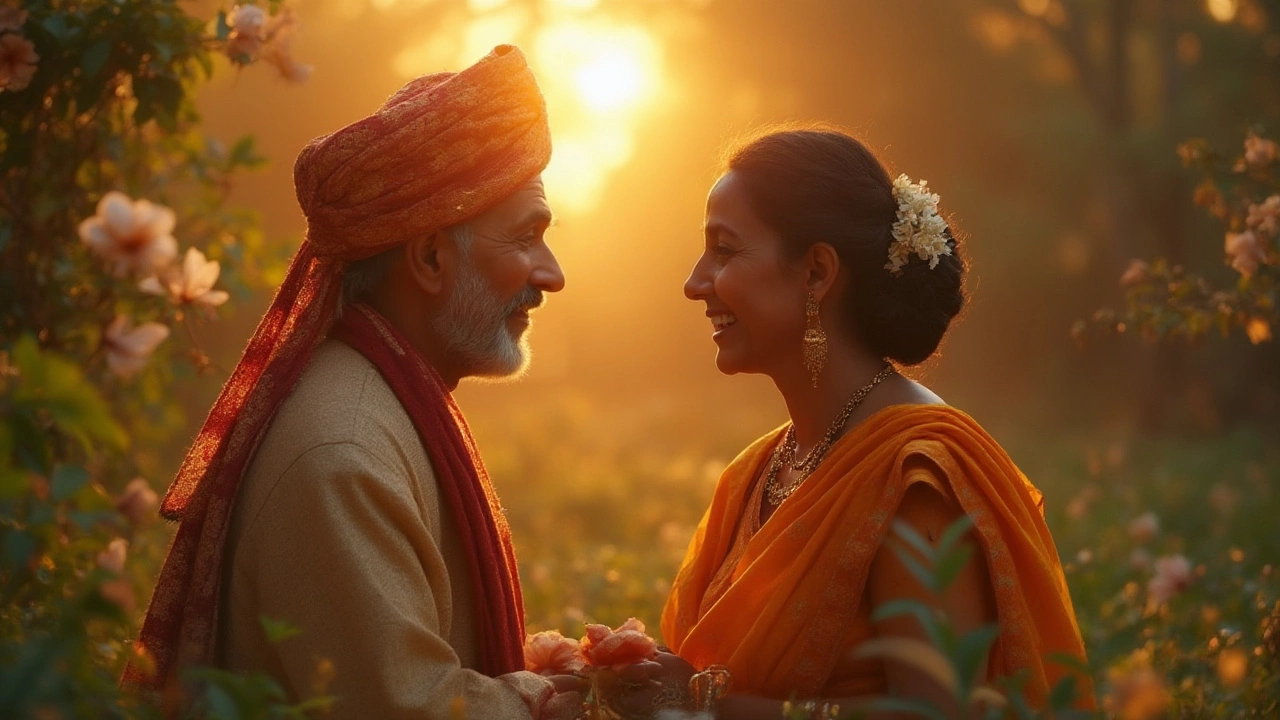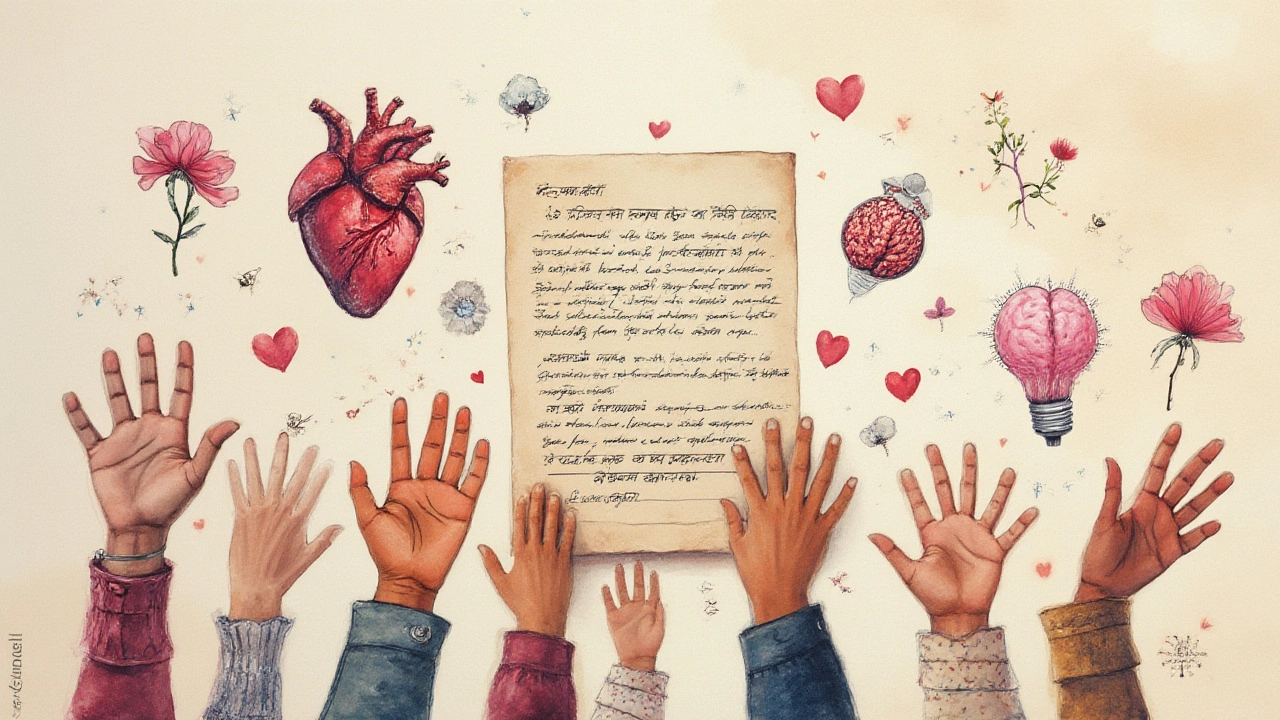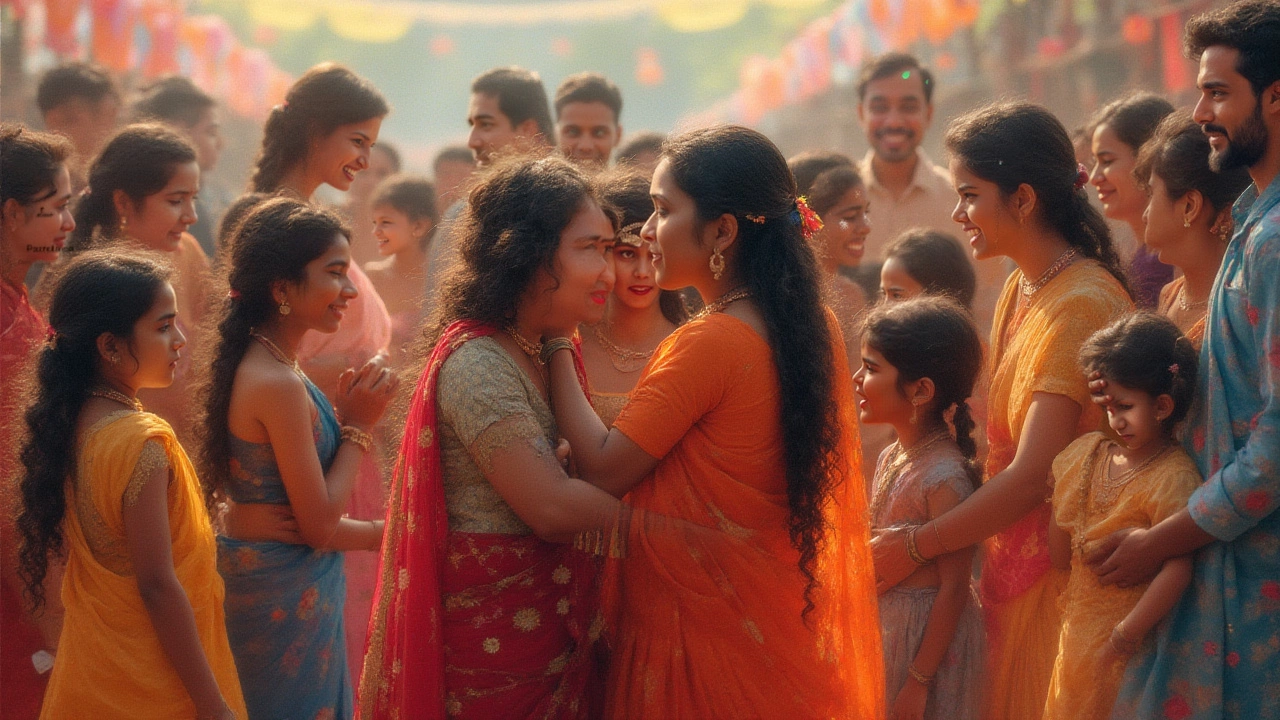
There’s always that one moment when you want to say something that captures the heart-thumping, breath-stealing, sparkling rush you feel for someone you love. But all you’re left with is the word “love,” and it feels both grand and a little…expected. Most of us crave something stronger, something that sounds as wild and true as how it feels. Hunting for the right word can be maddening. Is there a single word in any language that truly slaps down the full force of what you feel? Or are we all just playing with shadows, hoping that a single phrase can speak for our heart?
The Power of Words: Why Language Shapes Love
Language is the way we share our innermost secrets, and yet it’s rarely enough. When it comes to love, we tumble through dozens of words and metaphors — from “sweetheart” to “soulmate,” “love you” to “mad about you,” and still, none of them ever feel completely adequate. Think about it: “I love you” is the most Googled relationship phrase on earth. Every hour, over 15,000 people are typing those three words into search bars. That says something. But context matters too — an “I love you” on the phone at 2 a.m. is different from one whispered in a crowded train in Mumbai or scribbled at the bottom of a love note.
Words aren’t just pretty. They’re powerful. People who say they express love often — using strong or emotionally loaded words — have happier, more stable relationships, says an actual longitudinal study from the University of Rochester. Couples who find creative or unique ways to express love count themselves as more satisfied. Even pet owners get in on this. I’ve lost count of the times I tell Luna, my cat, “I adore you,” or “No one in this house loves you more!” Does she understand? She just blinks and flops over, but I swear she knows the difference between “good kitty” and “my heart belongs to you.”
This isn’t new. Ancient civilizations obsessed over finding words strong enough to explain love. Sanskrit has more than 90 terms for different forms of affection and attachment! Greeks divided love into “eros” for passion, “philia” for friendship, “agape” for selfless devotion, and “storge” for family love. In Japanese, “ai” is deep, profound love — while “koi” carries the ache of longing. Even in Hindi, we’ve got “prem,” “ishq,” and “mohabbat.” These words each have their own shades: “Ishq” has a feverish intensity in Urdu poetry; “mohabbat” is softer, more romantic, the sort of emotion that makes Bollywood scripts sizzle. Boy, the list just keeps growing.
Sometimes the strongest word isn’t a word at all, but an action or even a look. In a study led by psychologist Dr. Gary Chapman, couples who showed love through what he called their “love language” — whether words, gifts, touch, acts of service, or quality time — reported higher relationship trust. Still, when it comes down to just choosing a word, most people want something with electricity. Why? Because we want to feel seen. We want the other person to know, without doubt, that they have us — body, mind, and soul — no matter what life throws our way.

Across Languages and Cultures: Chasing Love’s Strongest Expression
If you could borrow a word from another language or invent your own, would that finally be enough? Globally, the hunt for the strongest word to express love is actually a game people play. Did you know that “forelsket” in Norwegian means the overwhelming euphoria of falling in love for the first time? Or that in Persian, “dooset daram” carries a heavy, romantic punch that makes “I love you” look almost mild? Even in Tamil, “anbu” is a kind of affectionate, everlasting love — something beyond romance, something that lasts through time.
Here’s something wild: according to UNESCO, there are over 7,000 living languages right now, and more than half have a word for love that’s different from the generic “love.” The emotion stays the same, but society, upbringing, and local flavor twist it into something unique. There’s “ti amo” in Italian, “je t’aime” in French, “saranghae” in Korean, “te quiero” in Spanish — each one swirling up its own images of old poems, movies, and midnight confessions. Some people swear that love expressed in your mother tongue hits harder than any other language. I tried saying “I love you” in Japanese once (“aishiteru”) in a message to a close friend who’s obsessed with anime, and she burst into happy tears. It felt different — because it was special, tailored for her.
Some words, like the Albanian “dashuri” or the Tagalog “mahal kita,” get wrapped up in history, songs, and even family traditions. Nineteenth-century Bengali poets like Rabindranath Tagore would lose whole pages searching for the right word for love — and trust me, Bengali is packed with them: “bhalobasha,” “prem,” and the shy, half-whispered “moner manush.” Sometimes, the actual punch of a word comes from how rarely you use it. In some cultures, people save the strongest word for love for a moment when it can truly change things — like a proposal, or reassuring someone in grief.
Is there a way to rate these words? A study by psychologist Tim Lomas catalogued more than 600 expressions of love across 50 languages, ranking them by emotional intensity and cultural meaning. “Ishq” and “agape” came up as some of the most powerful because they imply unconditional, never-ending devotion. Research showed that expressions that fuse passion, affection, and commitment tend to hit hardest. But for raw electricity, nothing comes close to the first time you hear someone say “I am yours.” Those three words — spoken in any language — bring a feeling like no other, because they imply a surrender, a sense of belonging. It’s not just “I love you.” It’s “you have me.”

Choosing and Using the Strongest Word: Facts, Tips, and Modern Love
Saying “I love you” can feel routine — but choosing something stronger is like painting with new colors. If you want your words to carry maximum punch, go for honesty, timing, and a bit of creativity. Don’t repeat lines from movies unless they honestly fit. Try making up your own pet names or using words that are tied to shared memories. For example, instead of “I love you,” say “You are my safe place.” Swap “forever” for something more real: “As long as there’s air in my lungs, I’m yours.” Don’t worry if it sounds cheesy — love, by nature, is a little corny, and that’s okay.
Here are some ideas and real-life-tested tips to make your word stand out:
- Personalize it: Link the word to something you’ve shared. If you and your person love stargazing, maybe call them your “moonbeam.”
- Dig into your roots: Use your first language, or maybe even try out a word from their culture.
- Context is key: Whisper a new word in the right moment — not over text, but when it really matters.
- Keep it rare: Save your strongest words for when you really need them. Too much, and it feels watered down.
- Pair it with action: Back up your words. If you say “I’m yours forever,” show up when they need you.
There’s a science to the effect of powerful words on the brain. A 2023 neuroimaging study at the University of Delhi revealed that hearing emotional declarations like “I adore you” or “You complete me” triggers a stronger dopamine release than neutral statements, causing the same part of your brain to light up as when you win a big prize. Strong, heartfelt words — especially when new and meaningful — change your brain chemistry, making both the speaker and listener happier. “I love you” might be universal, but your own made-up or borrowed version could have even more kick.
Let’s settle the eternal question: What’s the strongest word for love? Most linguists and psychologists agree — there isn’t a perfect word. But the closest contenders are words that talk about unconditional giving, deep trust, and belonging. “Agape” (Greek), “Ishq” (Urdu), “Devotion,” and “Mine” all pack major emotional whallop. But the single most powerful expression, the one that shows up in love letters, wedding vows, and final words, is this: “Yours.” When you tell someone you are “theirs,” entirely, you are trusting them with your heart, future, and flaws.
Don’t know how to say I love you in other languages? Here’s a quick cheat sheet:
| Language | Word/Phrase for Love |
|---|---|
| Hindi | Main tumse pyaar karti hoon |
| Tamil | Naan unnai kathalikaraen |
| French | Je t'aime |
| Spanish | Te quiero / Te amo |
| Korean | Saranghae |
| Urdu | Mein aap se mohabbat karti hoon |
| Japanese | Aishiteru |
| Italian | Ti amo |
Bottom line: Words are only as strong as the feelings and actions behind them. Whether you’re whispering “ishq” at 2 a.m. or texting someone a new word you made up, if it comes from a place of honesty, vulnerability, and care, it will ring true. Don’t stress about finding the strongest word to express love. Find the one that is true for you — and give it freely. That, really, is the strongest love of all.